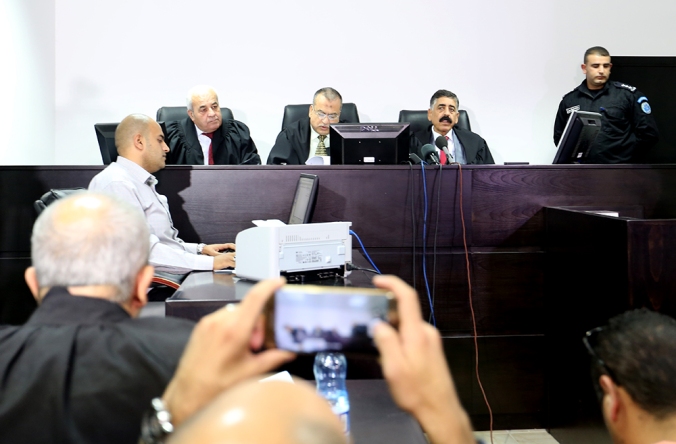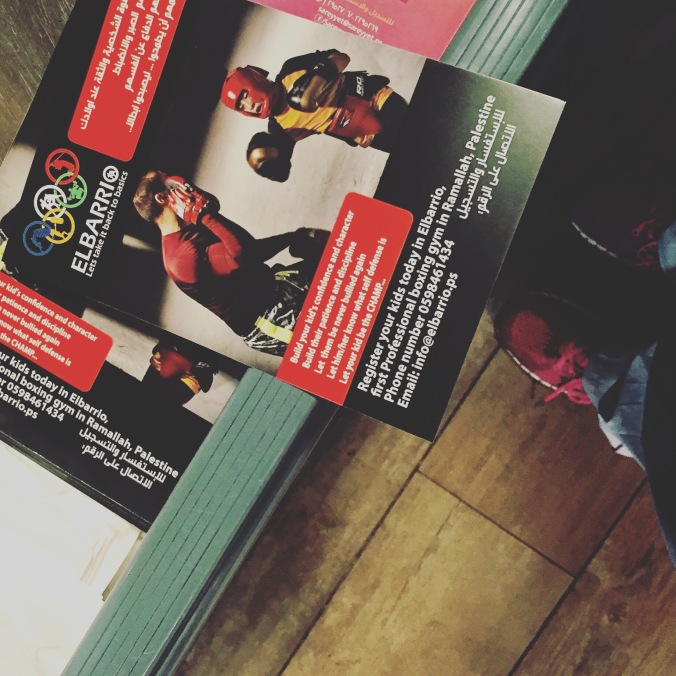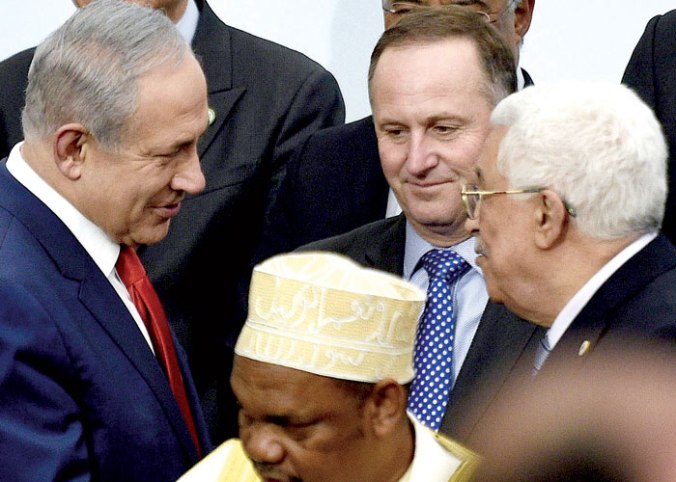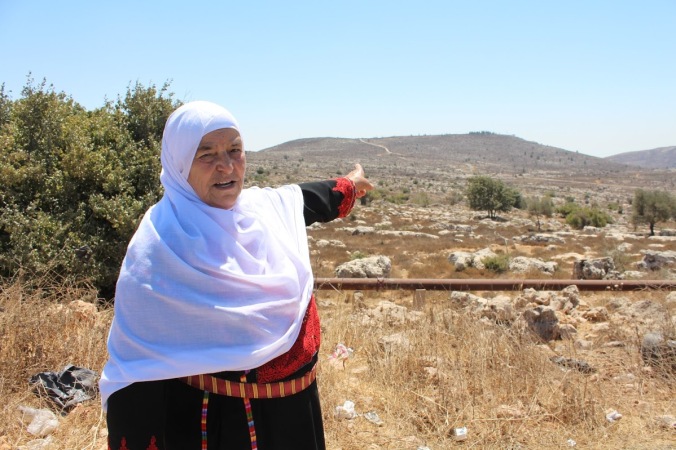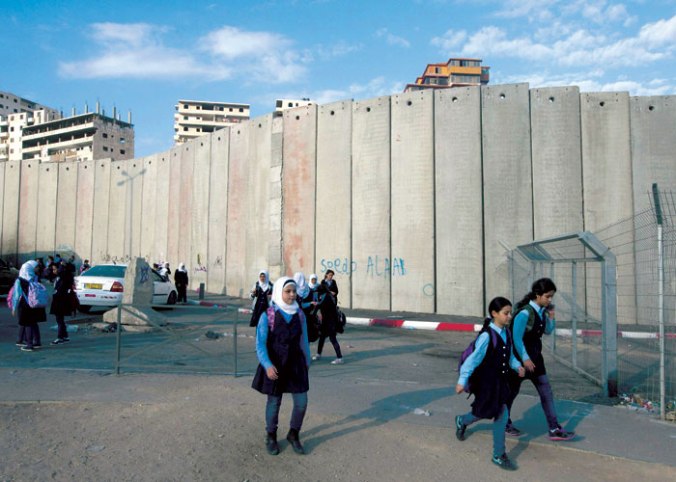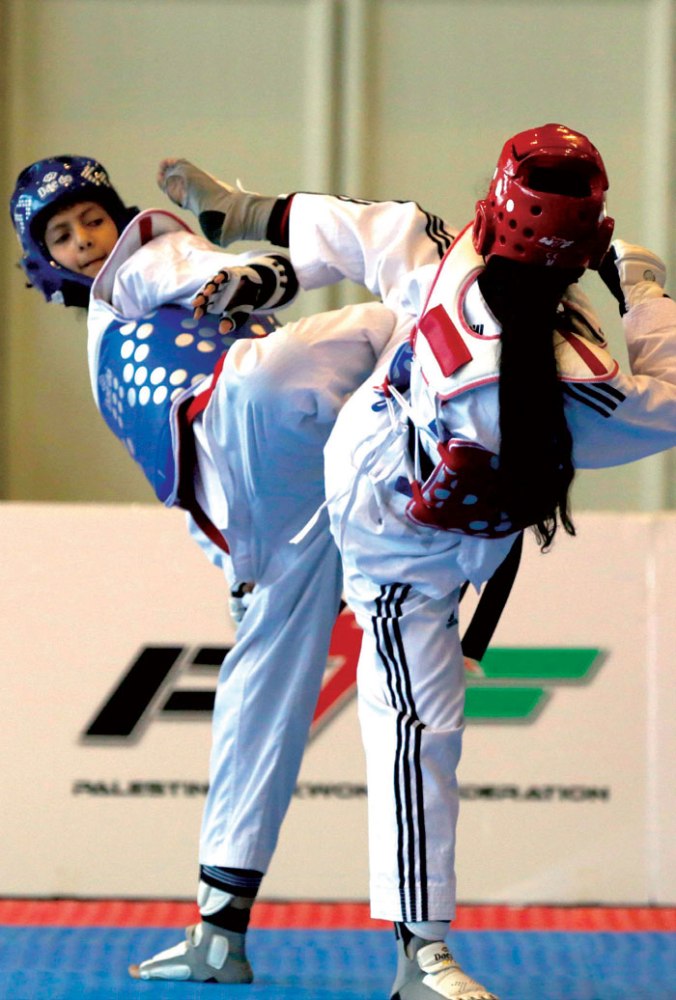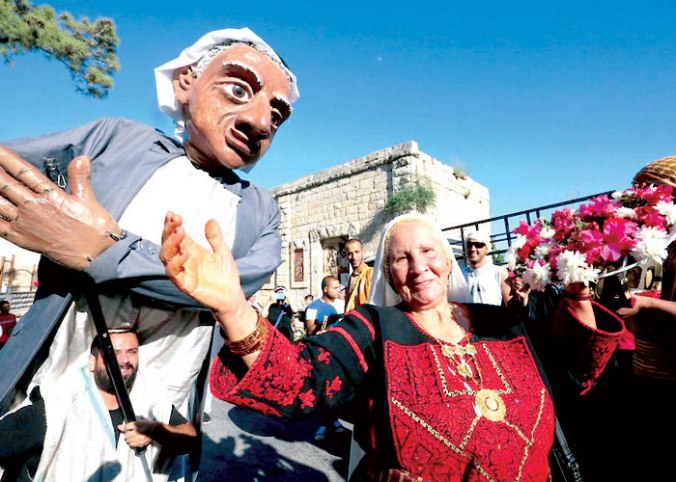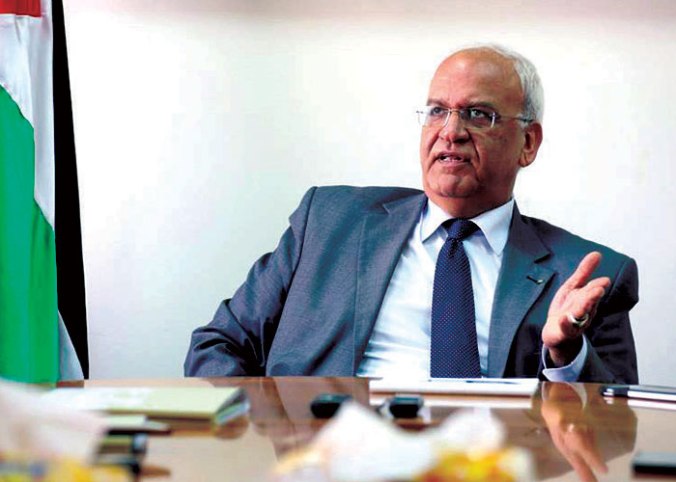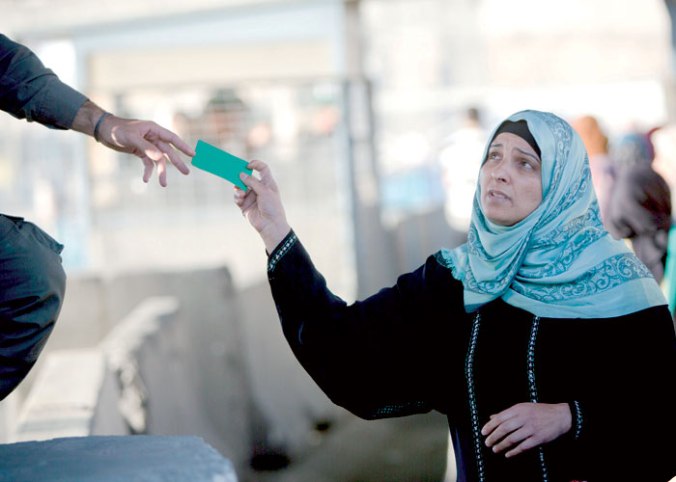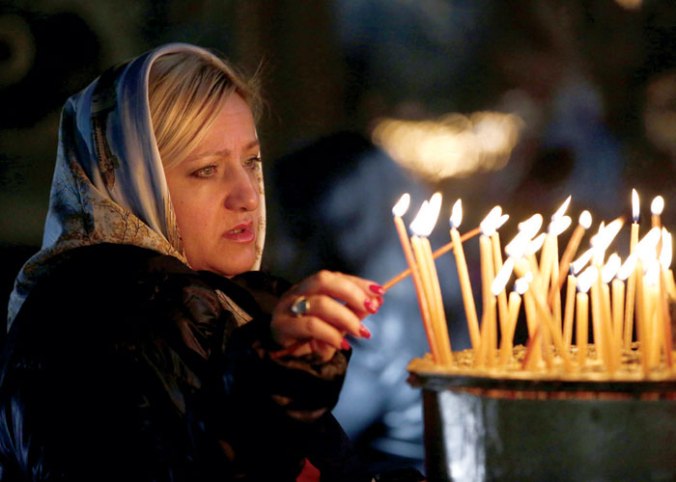
A Christian worshipper lights a candle at the Church of the Nativity in the biblical West Bank city of Bethlehem. (AFP)
Bethlehem – Unlike 2015, when violence and tension between Palestinians and Israelis overshadowed Christmas celebrations, Bethlehem in the West Bank braced for a joyful holiday season celebrated by people of all faiths.
Being the birthplace of Jesus, as stated in the Bible, Bethlehem receives tens of thousands of visitors and pilgrims, both Palestinians and foreigners.
Roman Catholics and Protestants celebrate Christmas on December 25th while Greek, Coptic, Syrian and other Orthodox Christians observe it on January 6th. For Armenian Christians, Christmas is on January 18th. That allows Bethlehem a longer Christmas celebration than other places.
Festivities traditionally kick off in early December when Bethlehem municipality has its annual Christmas tree lighting ceremony next to the Church of the Nativity, which was built over the site where Jesus is believed to have been born.
The lighting of the tree on December 3rd is the second most celebrated event after Christmas Eve. Thousands of people flock into Manger Square to witness the tree brightly illuminated as choirs sing Christmas carols.
“Like a cascading waterfall of stars, Bethlehem’s tree is magical,” said Talal Abu Hija, a Palestinian from Ramallah who travelled to Bethlehem to take part in the event.
Although another tree was lit in Ramallah, which serves as the administrative capital of the Palestinian Authority, many described the tree lighting in Bethlehem as unrivalled.
Abu Hija said she made the trip to Bethlehem because it is the only city where she feels the Christmas spirit. “It took me two-and-a-half hours to reach Bethlehem from Ramallah, due to blocked roads and Israeli checkpoints, but the second I entered Bethlehem I felt transported to another world,” she said.
Walking the streets and narrow alleys of the ancient city, visitors can enjoy local Arabic music and Christmas songs playing from loudspeakers and souvenir shops while sparkling ornaments carefully dangled from surrounding trees and buildings.
The city is preparing to receive more than 10,000 tourists and pilgrims during the holiday season this year, Palestinian Minister of Tourism and Antiquity Rula Ma’ayaa said.
Tourism was lower than previous years during the first quarter of 2016, due to political tensions, but the number of tourists increased significantly afterward. “The percentage of hotels’ occupancy reached 85% and is expected to reach 100% on December 23rd, 24th and 25th,” Ma’ayaa said in a news release.
The streets of Bethlehem exude hope and joy. With snowflake-shaped ornaments dangling above, street sellers encourage shoppers to buy Santa Claus-style hats, creating sights and sounds that become an integral part of the city.
With temperatures dropping to around 5 degrees Celsius at night, restaurants and bars become favourite refuges for those who are looking to enjoy a warm meal and a refreshing drink.
Although many Christian Palestinian families follow the Western tradition of serving roast turkey, there are no dishes that Palestinian Christians prepare specially to celebrate Christmas, making dinner tables extremely diverse, colourful and certainly mouth-watering.
Alice Yousef, from Ramallah said her family usually opts for a perfectly stuffed lamb or qedra, a rice-based dish seasoned with nutmeg and allspices and topped with lamb chunks.
“There are, however, many sweets we only make during Christmas like ghraybeh (Middle Eastern shortbread cookies), rock cake, ginger cookies, Christmas cake and Buche de Noel.”
What is also special about the holiday season in Palestine is the first week of December, which is known as Bourbara, a celebration to commemorate Saint Barbara. Families prepare wheat porridge, which is topped with sugared fruit, chocolate and sweets, and is traditionally distributed to the poor and needy.
In addition to elaborate dishes and sweets, visitors may indulge in offerings from the many food stalls on Manger Square and in the streets of Bethlehem, where they can grab a falafel sandwich and a hot cup of tea with mint leaves or sage.
On Christmas Eve, pilgrims who have no access to midnight mass in the Church of Nativity — only those with connections or who are able to get the limited tickets from Christian religious institutions can attend — often join the annual procession to Bethlehem or travel to nearby Jerusalem to visit other historical religious sites, such as the Church of Holy Sepulchre.
The Bethlehem municipality chose Mercy as its Christmas theme for 2016, stressing that it is what the Palestinian people, who are struggling to have their own state and live in peace, need most.
